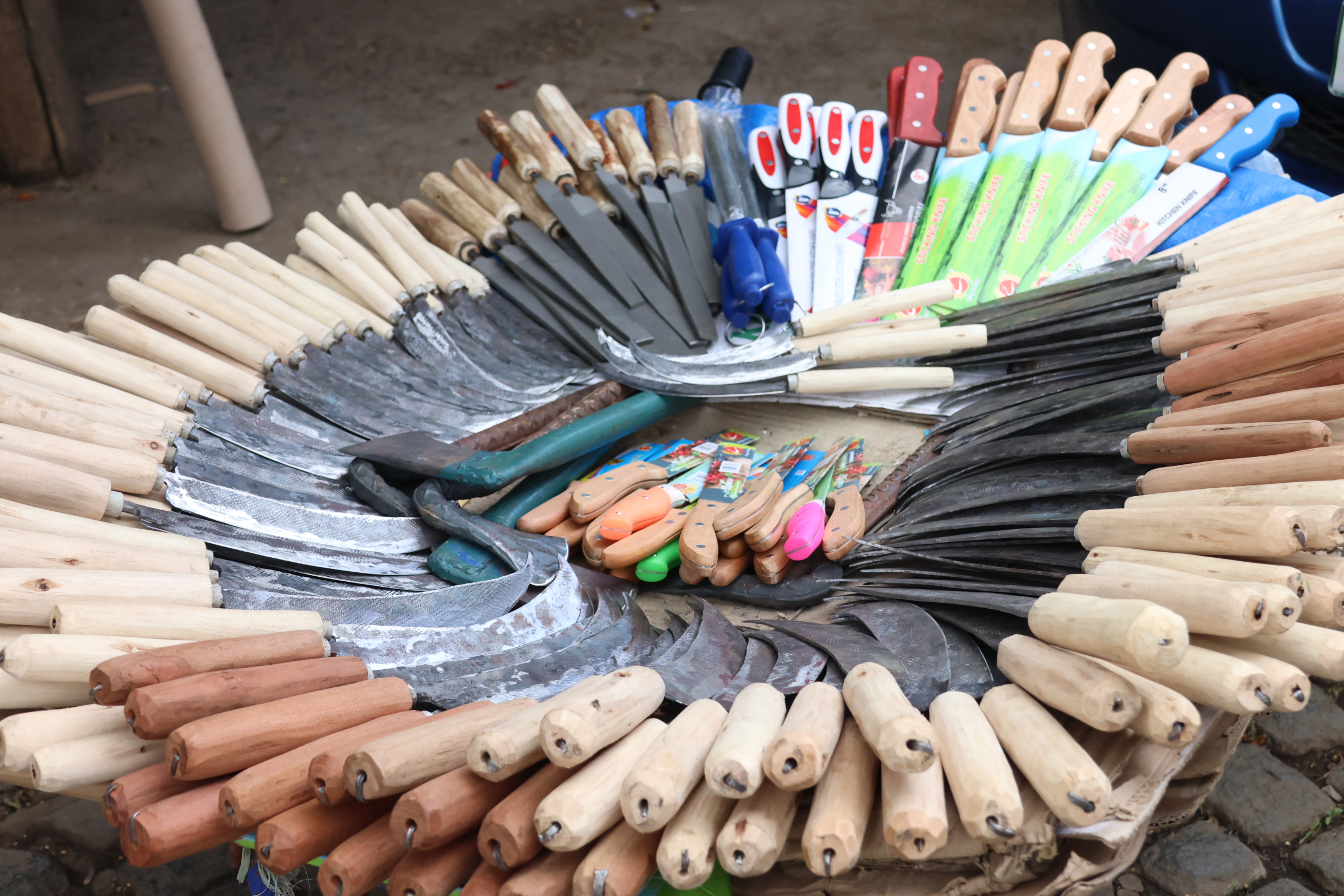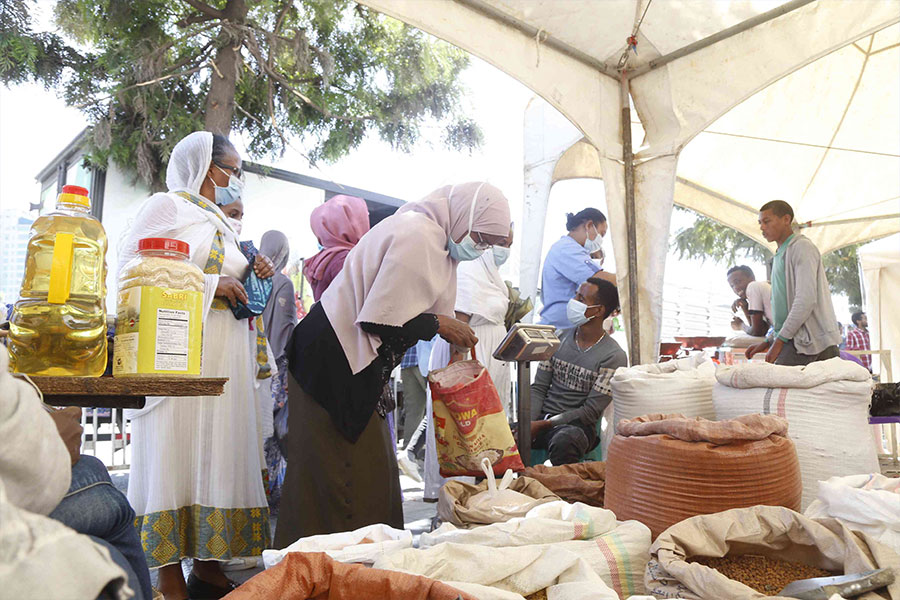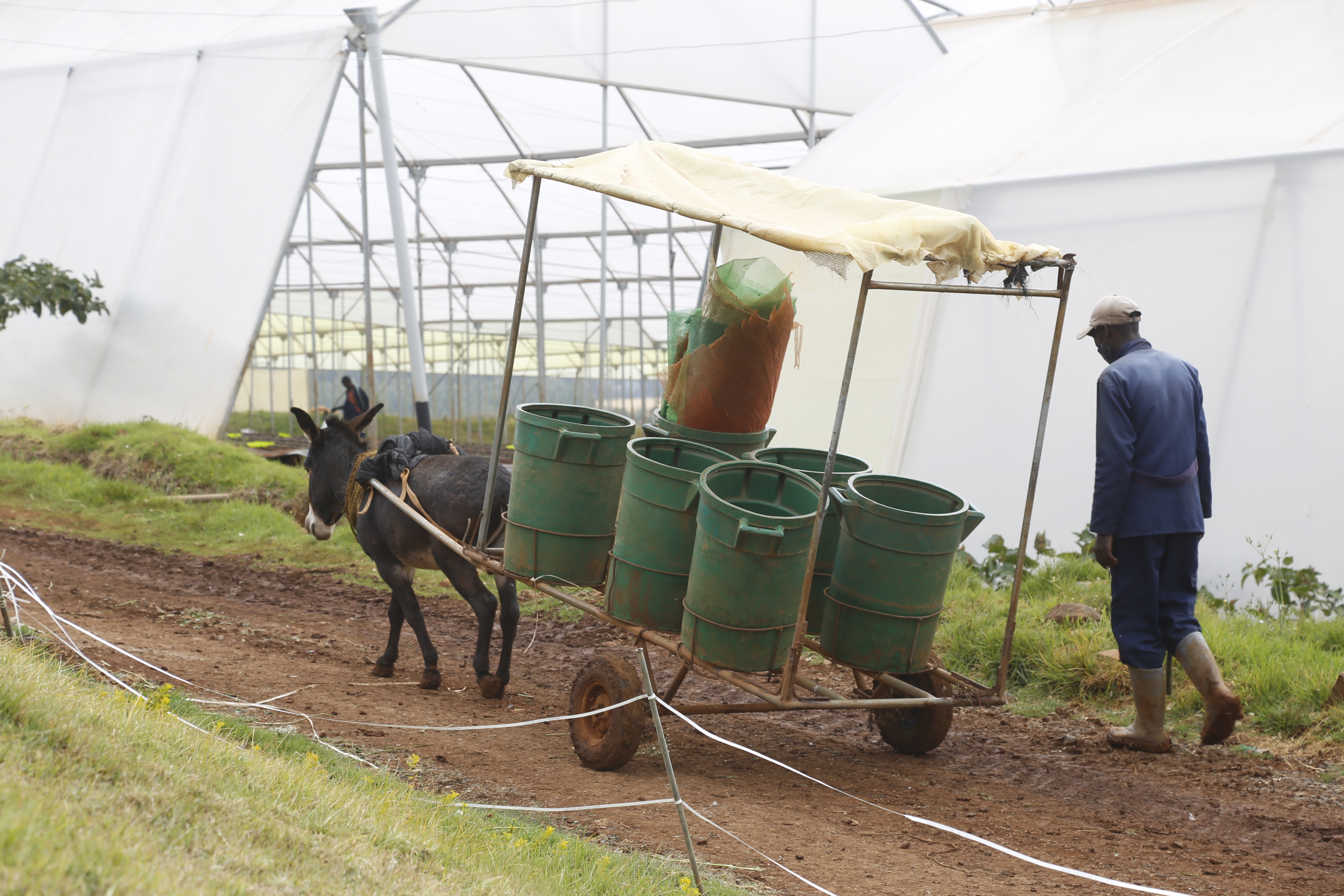
On the eve of the Ethiopian New Year, Shola Market in Addis Abeba turns into a vortex of commerce and tradition. The pungent mix of hay, eucalyptus smoke, and blood signals not only the season’s frenzy but also an economic shift reshaping how urban households handle ritual poultry slaughter. The once-private act of killing and dressing a chicken has moved decisively into public markets, creating both a livelihood for butchers and a public-health dilemma for regulators.
At the centre of this transformation are men like Yohannes Misganaw, 27, who now processes up to 200 chickens a day at 100 Br apiece, with customers bringing their own birds. Demand surges around the New Year and Easter, but even ordinary weekdays are marked by long queues. Labour charges push household poultry costs above 1,500 Br, yet customers continue to come, citing convenience, hygiene, or simply the lack of space and skill at home.
Vendors bellowed “Discounts Here!” while shoppers, eyes on bargains, threaded through the chaos. The loudest lane was lined with cages jammed with flapping chickens, the season’s true business. At the gate, a boy flourished a knife.
“Sharp blades for the New Year!” he cried, his pitch drowned by clucks and bargaining.
Inside, birds met their end on plastic tarps. Feathers and blood streaked the ground in red and white. One of the men working the blades was Yohannes, who had been the family butcher for a long time. He turned the skill into a trade four years ago after learning at his mother’s side.
“Now it’s surprising how many bring their chickens here instead of doing it at home,” he told Fortune.
Yohannes sells birds of his own, yet most of the roughly 200 he handles daily belong to customers who hire him for the 100 Br service. With a friend, he figured they process about three-quarters of the chickens in their corner of the market. A chicken that once carried only a purchase price now picks up labour charges, which push the final bill to between 1,500 Br and 2,000 Br, depending on the size.
Urban families spare cramped kitchens the mess and smell. Older shoppers arrive with warm greetings or even small toasts of gratitude. Younger ones bring curiosity or doubt.
Yohannes pressed a wing under his boot and brought down the knife in one swift motion. Within seconds, the carcass lay in 12 neat pieces. He knotted the bag and handed it to a customer who vanished into the crowd. Wiping the blade on a rag stained crimson, he scanned the line still snaking toward his table. Tradition, he knew, was shifting under his feet, but demand had never been stronger.
“Customers are confused watching us, but some even ask if I can train their children. Everyone should know how to slaughter at home.”
A few, he laughed, have told him they “should have married” him, likely a dig at husbands unwilling to wield the knife. He and his partner clean up after themselves, rinsing tarps and sweeping feathers, then hauling the waste to municipal dumps at their own expense. Still, the stigma lingers.
“It’s honest work,” he said, “but people don’t always see it that way.”
Older patrons occasionally produce a small bottle of tej, honey wine, for an impromptu toast to the butchers who save them the trouble of feather-plucking at home. Children watch the rhythmic slicing, their parents asking Yohannes to explain the 12-part cut so age-old skills are not lost.
Waiting for her turn with two children, Ateref Tenaw saw the service as essential. She paid 2,000 Br for the chicken, tipped Yohannes 200, and frowned at the splattered tarp.
“He does well,” she said. “But the environment could be cleaner. We need healthy conditions.”
Public-health experts echo her worry.
“Meat and milk are sensitive,” said Asayehegn Tekeste, a health specialist. “The person doing the slaughtering should be medically cleared, and the environment poses risks.”
He warned of dead chickens passed off as fresh and the slow build of an outbreak.
“The risk is not daily, but trends can build," he told Fortune. "A health check every six months should be mandatory.”
Across town at Qera Market, Segni Gemechis, 30, lives by the same trade. Festival eves see him dispatching more than a hundred birds at 100 Br apiece, with tips often lifting the fee to 150.
“People are adapting this service,” Segni said, a knife flashing in sunlight. “It’s not only business, it helps families.”
Customers now appear even on ordinary days, although the New Year and Easter remain peak periods. “There’s no real difference between doing it at home or here,” he added, wiping his blade clean.
Even supermarkets that once prided themselves on imported fare now stock local chickens, cleaned and quartered.
Getahun Abate spent over a decade in the domestic retail industry. He is now the operations manager for Lewis Retailer, formerly Bambis. He saw that demand for chicken had increased remarkably, compared to years ago when local "Habesha" breed chickens were not common on supermarket shelves.
“Now they’re fully prepared in different cuts," said Getahun. "Customers prefer the convenience. Celebrations still drive spikes, but the system has changed. People want ready and safe products.”
Regulation trails the market, with health inspectors making annual rounds, confiscating spoiled produce and warning vendors lacking certificates, yet enforcement is uneven. After touring several markets, Worknesh Birqe, communications director of the Addis Abeba Food & Drug Authority, was blunt.
“We don’t have a specific law to control this,” she admitted.
Officials scramble to keep up. In the week leading up to the holiday, the Authority deployed teams to major markets, inspecting butter, honey, meat, and dairy, and removing spoiled vegetables. Vendors without proper certificates were warned, but a limited workforce meant follow-up was scarce.
Shrinking kitchens and packed schedules have turned market slaughtering into a fixture in Addis Ababa. However, health officials warn that convenience should not come at the expense of safety.
“We can’t say it’s safe without oversight,” Asayehegn said. “Regulation is essential and even if laws don’t yet exist, the discussion must begin.”
PUBLISHED ON
Sep 27,2025 [ VOL
26 , NO
1326]

Fortune News | Apr 29,2023

In-Picture | Apr 27,2025

Agenda | Jun 25,2022

Commentaries | Sep 27,2025

Radar | Jun 12,2023

Dec 22 , 2024 . By TIZITA SHEWAFERAW
Charged with transforming colossal state-owned enterprises into modern and competitiv...

Aug 18 , 2024 . By AKSAH ITALO
Although predictable Yonas Zerihun's job in the ride-hailing service is not immune to...

Jul 28 , 2024 . By TIZITA SHEWAFERAW
Unhabitual, perhaps too many, Samuel Gebreyohannes, 38, used to occasionally enjoy a couple of beers at breakfast. However, he recently swit...

Jul 13 , 2024 . By AKSAH ITALO
Investors who rely on tractors, trucks, and field vehicles for commuting, transporting commodities, and f...

Oct 25 , 2025
The regulatory machinery is on overdrive. In only two years, no fewer than 35 new pro...

Oct 18 , 2025
The political establishment, notably the ruling party and its top brass, has become p...

Oct 11 , 2025
Ladislas Farago, a roving Associated Press (AP) correspondent, arrived in Ethiopia in...

Oct 4 , 2025
Eyob Tekalegn (PhD) had been in the Governor's chair for only weeks when, on Septembe...